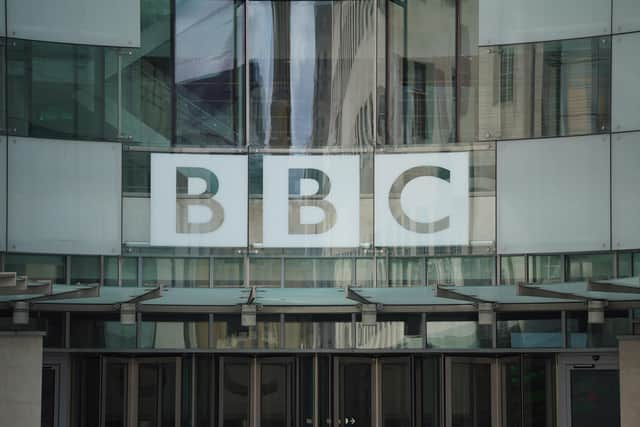The Panorama scandal remains a ticking time bomb for the BBC - David Behrens
We got wind of this on Tuesday with the release of documents relating to its notorious 1995 interview with the late Princess Diana – the one in which she disclosed that “three of us” were living out her marriage to the now King.
This confession was coaxed out of her by the Panorama reporter Martin Bashir, who, we have since learned, had gone so far as to forge bank statements that might gain him access to her family.
Advertisement
Hide AdAdvertisement
Hide AdIt was one of the most shameful episodes in the BBC’s history and it remains a ticking time bomb under Broadcasting House. As such, the organisation is doing everything in its power to prevent the full details ever coming to light.


The fact that it’s telling us anything at all is down to the perseverance of another reporter, Andy Webb, who made a documentary for Channel 4 about the interview and the subsequent back-pedalling. Back in 2021 Webb slapped a Freedom of Information request on the BBC to hand over documents and emails that might prove what it knew and when. The corporation’s response was to embark on a £200,000 legal battle to keep the files to itself.
It caved in only after a judge criticised its “inconsistent, erroneous and unreliable” handling of Mr Webb’s request and gave it a deadline to comply. This week, with literally hours to spare, the corporation finally released its dossier – but with so much redacted on spurious “legal privilege” grounds that it was largely meaningless.
Key passages were scored out in black ink while dozens of other pages were left entirely blank, save for the unhelpful words ‘withheld in full’.
Advertisement
Hide AdAdvertisement
Hide AdThis is not what we should expect from the nation’s self-styled guardian of free speech. If the BBC is to remain the UK’s publicly-funded national broadcaster, our most basic requirement of it is to be accountable to the public.
All Tuesday’s release really told us was that Bashir believed he had been the victim of institutional racism within the organisation. He thought his Panorama colleagues disliked the fact that “a second-generation immigrant of non-white, working-class roots” had secured such a scoop and that it would have been “easier if one of the dynastic families” like the Dimblebys had landed it.
This proves nothing except that Bashir had a chip on his shoulder. And in an old-school-tie institution like the BBC that’s perhaps not surprising.
But what is remarkable is that he should have been saying anything at all, because those comments came from an email he sent to a BBC historian in 2020 – at the same point as the corporation was telling the world it could not speak to him because he was “seriously unwell”.
Advertisement
Hide AdAdvertisement
Hide AdIt must have been an illness of convenience because it gave his former bosses a legal loophole to avoid making other documents available.
This adds up to only one thing: a cover-up. And not just any cover-up but a cover-up of an earlier cover-up – because the BBC had been hiding what it knew about Bashir’s fake documents from the very start. It even held an internal inquiry which pronounced the original broadcast above reproach.
That review, which was comprehensively trashed by a judge three years ago, was conducted by a news executive called Tony Hall, who, embarrassingly for the corporation, would later become its director-general. When that happened, a second whitewash became necessary to conceal the first one.
That’s where comparisons to the Horizon scandal at the Post Office become apparent. Both are the results of misconceived projects whose out-of-control consequences were concealed by bosses concerned only with covering their backs. And while the miscarriage of justice at the Post Office is out of proportion to the harm done by the BBC – except to Diana and her family – the degree of deception, prevarication and sheer mendacity is entirely comparable.
Advertisement
Hide AdAdvertisement
Hide AdThe fallout from Horizon has turned the Post Office toxic. It was once one of the nation’s most trusted brands; now it stands as a symbol of boardroom grift.
The train of events set off by Martin Bashir is having the same effect at Broadcasting House. It makes it impossible to take the BBC at its word. And that can’t help but colour the debate when the next government determines the future of the licence fee.
Had The Crown not already done it a year ago, I’d have felt another ITV drama coming on.
Comment Guidelines
National World encourages reader discussion on our stories. User feedback, insights and back-and-forth exchanges add a rich layer of context to reporting. Please review our Community Guidelines before commenting.